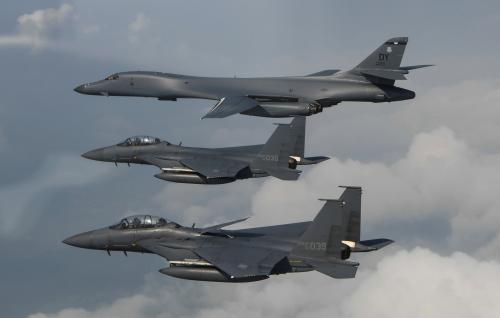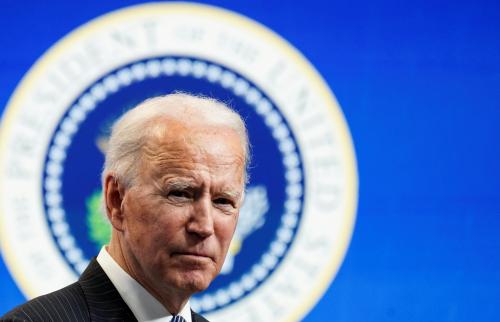In proposing a $48 billion defense budget increase for 2003 following a large increase in 2002, President George W. Bush has followed in the budgetary footsteps of former President Ronald Reagan and Reagan’s defense secretary, Caspar Weinberger. Adjusted for inflation, Bush’s 2003 defense budget would be $50 billion higher than the 2001 budget. By 2007, the real dollar defense budget would go up $30 billion more, approaching the peak levels of the Reagan years.
Even in these troubled times, such increases are too much. Further defense budget growth is needed. But the Pentagon needs to be more selective about its weapons modernization plans.
In addition, after several successive years of increases, military pay is now in fairly good shape, as reflected in the improved statistics for recruiting and retaining personnel in recent times. America’s military men and women are of outstanding caliber and deserve proper compensation, but their pay is no longer poor compared with private sector employment, and the administration’s plans for large increases are excessive. The large research and development budgets proposed by the administration exceed the already hefty increases advocated by President Bush during his campaign; given that research and development was not severely cut during the 1990s, such growth seems unnecessary now.
Finally, the Pentagon also needs to reform many of the ways it provides basic services such as military health care, military housing, and various base operations. Unfortunately, if budgets get too big, the Pentagon’s incentives to look for efficiencies are likely to weaken. On balance, the planned increases in defense spending are roughly twice as much as would be appropriate in the years ahead. Instead of the administration’s plan for a $396 billion defense budget in 2003, which would increase to $470 billion by 2007, next year’s budget should be about $370 billion and the 2007 level should not exceed $430 billion.


Commentary
TestimonyRestraining the Growth of the U.S. Defense Budget
February 28, 2002